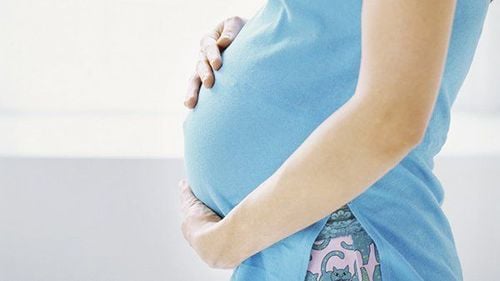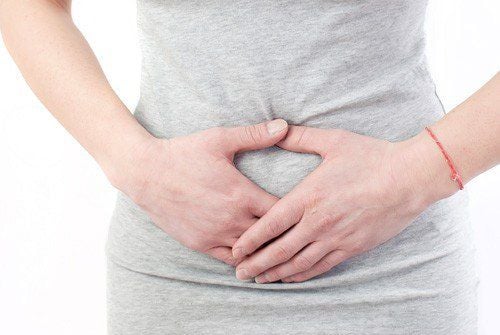The article was written by Doctor Le Thu Huong - Resident Doctor - Rehabilitation, Center for Regenerative Medicine - Vinmec Times City International General Hospital.
Urinary retention is not a common condition among pregnant women. According to research, it occurs in approximately 0.47% of cases globally. This condition can arise at any stage of pregnancy, but it is most prevalent between weeks 9 and 16. Notably, during this specific trimester, about two-thirds of the cases are reported compared to other periods in pregnancy.
1. Overview
Urinary retention is the inability to urinate from the bladder.
There are two types of urinary retention: acute urinary retention (AUR), which is dangerous and lasts for a short time and then disappears, and chronic urinary retention, which gradually increases and lasts for a long time. Normally, urinary retention often occurs in older men, but it also occurs in women.
Studies have also shown that women who are pregnant for the first time and women over 35 years old are more likely to have urinary retention during pregnancy than other groups.
Urinary retention during pregnancy can lead to health problems such as urinary tract infections, urinary stones, or more seriously, kidney failure, bladder rupture, miscarriage, premature birth, and fetal malnutrition. Therefore, this condition needs to be controlled very closely.
Article written by Doctor Le Thu Huong - Resident - Rehabilitation, Regenerative Medicine Center - Vinmec Times City International Hospital

2. Causes of urinary retention during pregnancy
Causes due to body anatomy and anatomical changes during pregnancy.
Retroverted uterus: 11-15% of patients with urinary retention during pregnancy have a retroverted uterus and 1.4% of women with a retroverted uterus have acute urinary retention during pregnancy. During this period, in patients with retroverted uterus and fallopian tubes, the bladder neck may be compressed due to a deviated cervix. Around the 14th week of pregnancy, the position of the uterus and fallopian tubes usually rotates to a higher position, releasing the compression on the bladder neck, thereby eliminating urinary retention and the patient will be able to urinate normally again.
Factors such as pelvic adhesions, pelvic congenital malformations, posterior uterine fibroids, endometriosis, and abortion also affect AUR by obstructing the uterus from entering the abdominal cavity.
Vaginal prolapse, bladder, and uterine hernias are also quite common causes of urinary retention in women and can occur during pregnancy, especially when the fetus is large. Unlike the above causes, urinary retention due to these causes is difficult to resolve on its own, but becomes increasingly severe, requiring intervention measures to treat the cause to resolve the problem of urinary retention.
Caused by body anatomy and anatomical changes during pregnancy.
Retroverted uterus: 11-15% of patients with urinary retention during pregnancy have a retroverted uterus and 1.4% of women with a retroverted uterus have acute urinary retention during pregnancy. During this period, in patients with retroverted uterus, the bladder neck may be compressed due to the deviation of the cervix. Around the 14th week of pregnancy, the utero-tubal position usually rotates to a higher position, releasing the compression on the bladder neck, thereby, the urinary retention will disappear and the patient will be able to urinate normally again. often.
Factors such as pelvic adhesions, congenital pelvic abnormalities, fibroids of the posterior wall of the uterus, endometriosis, and abortion also affect the AUR by obstructing the uterus from entering the abdomen.
Genital prolapse, hernia of bladder, uterus are also quite common causes of urinary retention in women, and can be encountered during pregnancy, especially when the fetus is large. Unlike the group of causes above, urinary retention due to these causes is difficult to resolve on its own, but is increasingly severe, requiring interventions to treat the cause to be able to solve the problem of urinary retention. .

Urinary tract infections and infections in the lower genital area are also risk factors for urinary retention.
- Drug use: some drugs cause urinary retention such as anticholinergic drugs (such as antipsychotics, antidepressants, and some respiratory drugs), opioids, anesthetics, alpha-adrenoceptor agonists, NSAIDs, benzodiazepines, muscle relaxants and calcium channel antagonists...
- Other causes: nerve damage, herniated disk, pelvic tumors... can all occur
Vinmec International General Hospital offers a Comprehensive maternity care program for pregnant women right from the beginning of pregnancy in the first months with full prenatal check-ups, periodic 3D, 4D ultrasounds and routine tests to ensure the mother is always healthy and the fetus develops comprehensively.
Pregnant women will be consulted and examined under the close supervision of experienced and specialized obstetricians, helping mothers gain more knowledge to protect their health during pregnancy as well as minimize complications affecting mother and child.
To arrange an appointment, please call HOTLINE or make your reservation directly HERE. You may also download the MyVinmec app to schedule appointments faster and manage your reservations more conveniently.














